Homemade Cleaning Products: Unlock the Secrets to a Sparkling Home, Naturally!
Are you tired of harsh chemicals and sky-high prices for your cleaning supplies? I know I was! That’s why I dove headfirst into the world of DIY cleaning, and let me tell you, it’s been a game-changer. For centuries, people have relied on natural ingredients to keep their homes clean and fresh. Think about it – before the age of mass-produced cleaners, our ancestors used vinegar, baking soda, and essential oils to tackle dirt and grime. This tradition, passed down through generations, highlights the effectiveness and sustainability of these simple solutions.
But why should you embrace homemade cleaning products today? Well, besides saving money (who doesn’t love that?), you’ll also be creating a healthier environment for yourself, your family, and your pets. Many commercial cleaners contain harmful chemicals that can irritate your skin, trigger allergies, and even contribute to indoor air pollution. By making your own cleaners, you have complete control over the ingredients, ensuring a safe and non-toxic home. Plus, it’s incredibly satisfying to whip up a batch of all-purpose cleaner with just a few simple ingredients you probably already have in your pantry. So, are you ready to ditch the chemicals and embrace a cleaner, greener way of living? Let’s get started!
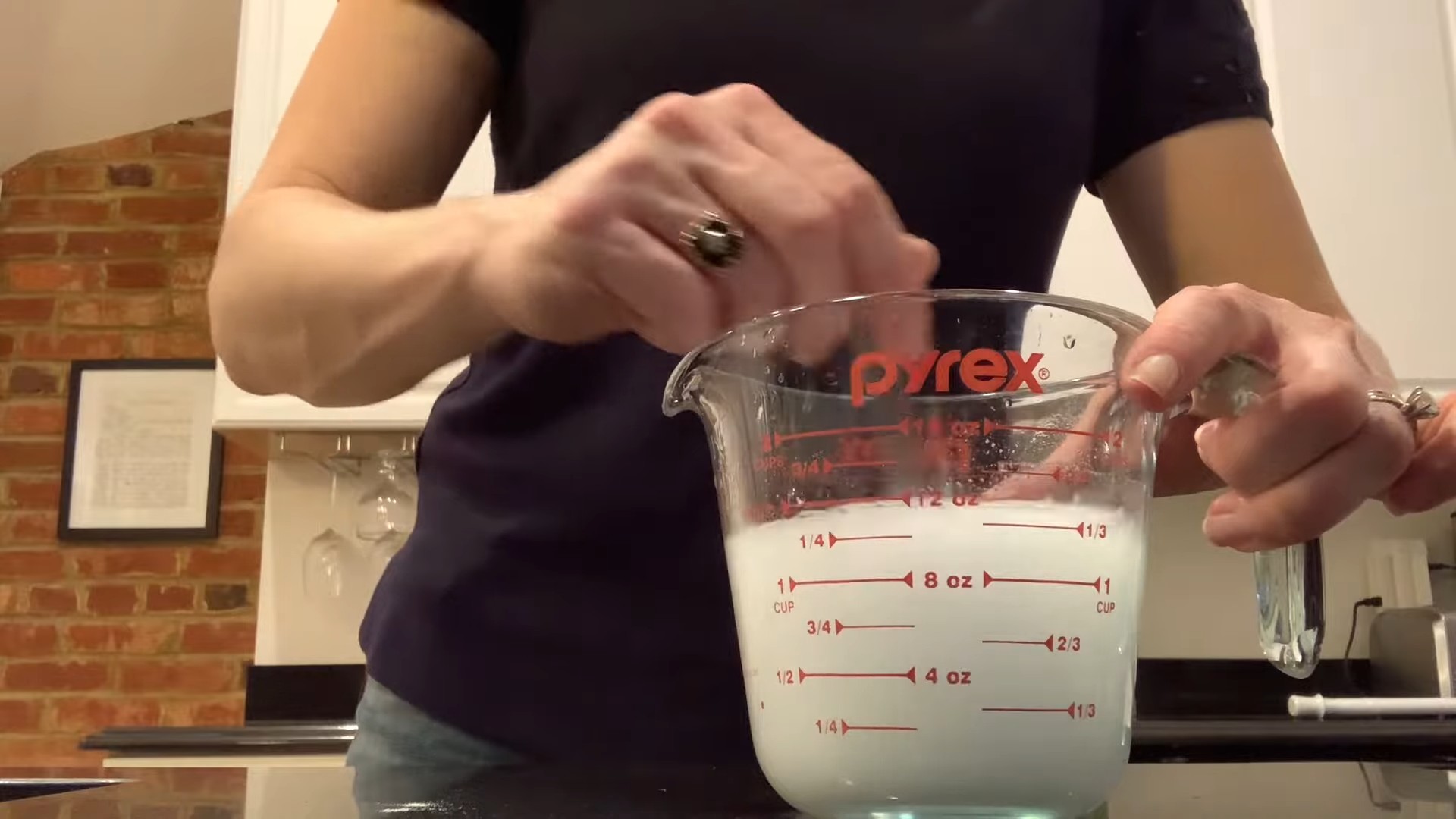
DIY Cleaning Products: Natural, Effective, and Budget-Friendly!
Hey there, fellow DIY enthusiasts! I’m so excited to share some of my favorite homemade cleaning product recipes with you. Not only are these recipes incredibly easy to make, but they’re also much gentler on the environment and your wallet than store-bought alternatives. Plus, you’ll know exactly what’s going into your cleaners, avoiding harsh chemicals and questionable ingredients. Let’s get started!
All-Purpose Cleaner: Your Go-To for Everything
This all-purpose cleaner is a workhorse! I use it on countertops, sinks, appliances, and even floors (just be sure to test it in an inconspicuous area first). It’s effective at cutting through grease and grime, leaving surfaces sparkling clean.
Ingredients You’ll Need:
* 1/2 cup white vinegar
* 1/4 cup baking soda
* 1/2 gallon (8 cups) hot water
* Optional: 10-20 drops of your favorite essential oil (lemon, lavender, tea tree, and eucalyptus are great choices)
* Spray bottle
Step-by-Step Instructions:
1. Combine Ingredients: In a large bucket or bowl, dissolve the baking soda in the hot water. Stir until the baking soda is completely dissolved. This prevents clogging in your spray bottle later.
2. Add Vinegar: Slowly pour in the white vinegar. Be prepared for some fizzing – that’s the baking soda reacting with the vinegar.
3. Add Essential Oils (Optional): If you’re using essential oils, add them now. I love lemon for its fresh scent and degreasing properties, but feel free to experiment with your favorites.
4. Transfer to Spray Bottle: Carefully pour the mixture into a spray bottle. A funnel can be helpful here to avoid spills.
5. Label Your Bottle: Don’t forget to label your bottle with the name of the cleaner and the date you made it. This will help you keep track of what’s inside and when it was made.
6. Use and Enjoy: Spray the cleaner onto the surface you want to clean, let it sit for a few minutes, and then wipe it clean with a damp cloth or sponge. For tougher messes, you might need to scrub a little harder.
Glass Cleaner: Streak-Free Shine Every Time
Say goodbye to streaks and smudges with this simple glass cleaner. It’s perfect for windows, mirrors, and even shower doors.
Ingredients You’ll Need:
* 2 cups water
* 1/4 cup white vinegar
* 1/4 cup rubbing alcohol (70% isopropyl alcohol)
* Optional: 5 drops of essential oil (lemon or peppermint are refreshing choices)
* Spray bottle
Step-by-Step Instructions:
1. Combine Ingredients: In a spray bottle, combine the water, white vinegar, and rubbing alcohol.
2. Add Essential Oils (Optional): If you’re using essential oils, add them now.
3. Shake Well: Shake the bottle well to ensure all the ingredients are thoroughly mixed.
4. Label Your Bottle: Label the bottle with the name of the cleaner.
5. Use and Enjoy: Spray the cleaner onto the glass surface and wipe it clean with a microfiber cloth or paper towel. For best results, use a clean, dry cloth.
Toilet Bowl Cleaner: Natural and Effective
This toilet bowl cleaner uses the power of baking soda and vinegar to clean and deodorize your toilet.
Ingredients You’ll Need:
* 1 cup baking soda
* 1/2 cup white vinegar
* Optional: 10 drops of tea tree essential oil (for its antibacterial properties)
Step-by-Step Instructions:
1. Sprinkle Baking Soda: Sprinkle the baking soda into the toilet bowl, making sure to coat the sides as well as possible.
2. Pour in Vinegar: Slowly pour the white vinegar into the toilet bowl. The mixture will fizz.
3. Add Essential Oils (Optional): If you’re using tea tree oil, add it now.
4. Let it Sit: Let the mixture sit for at least 15-20 minutes, or even overnight for tougher stains.
5. Scrub and Flush: Scrub the toilet bowl with a toilet brush and then flush.
Dish Soap: Gentle on Hands, Tough on Grease
This homemade dish soap is gentle on your hands but still effective at cutting through grease and grime.
Ingredients You’ll Need:
* 1 cup distilled water
* 1/4 cup liquid castile soap (like Dr. Bronner’s)
* 1 tablespoon washing soda (sodium carbonate)
* 1 teaspoon vegetable glycerin (optional, for extra moisturizing)
* 10-15 drops of essential oil (lemon, grapefruit, or orange are great choices)
* Soap dispenser
Step-by-Step Instructions:
1. Heat Water: Heat the distilled water in a saucepan over low heat. Do not boil.
2. Dissolve Washing Soda: Slowly add the washing soda to the warm water, stirring until it is completely dissolved.
3. Remove from Heat: Remove the saucepan from the heat and let the mixture cool slightly.
4. Add Castile Soap: Gently stir in the liquid castile soap. Be careful not to create too many bubbles.
5. Add Glycerin (Optional): If you’re using vegetable glycerin, add it now.
6. Add Essential Oils: Add your essential oils and stir gently.
7. Transfer to Soap Dispenser: Pour the mixture into a soap dispenser.
8. Use and Enjoy: Use the dish soap as you would any other dish soap. You may need to use a little more than you would with store-bought dish soap.
Laundry Detergent: Clean Clothes, Clean Conscience
This homemade laundry detergent is a great way to save money and reduce your exposure to harsh chemicals.
Ingredients You’ll Need:
* 1 cup washing soda (sodium carbonate)
* 1 cup borax (sodium borate)
* 1 bar of castile soap (like Dr. Bronner’s), grated
* Optional: 10-20 drops of essential oil (lavender, lemon, or tea tree are good choices)
Step-by-Step Instructions:
1. Grate Castile Soap: Grate the bar of castile soap using a cheese grater or food processor.
2. Combine Ingredients: In a large bowl, combine the grated castile soap, washing soda, and borax.
3. Add Essential Oils (Optional): If you’re using essential oils, add them now.
4. Mix Well: Mix all the ingredients together thoroughly.
5. Store in an Airtight Container: Store the laundry detergent in an airtight container.
6. Use and Enjoy: Use 1-2 tablespoons of laundry detergent per load of laundry. For heavily soiled clothes, you may need to use a little more.
Furniture Polish: Restore Shine and Protect Wood
This furniture polish is a natural way to restore shine and protect your wood furniture.
Ingredients You’ll Need:
* 1/4 cup olive oil
* 1/4 cup white vinegar or lemon juice
* Optional: 5-10 drops of essential oil (orange, cedarwood, or sandalwood are good choices)
* Spray bottle or jar
* Soft cloth
Step-by-Step Instructions:
1. Combine Ingredients: In a spray bottle or jar, combine the olive oil and white vinegar or lemon juice.
2. Add Essential Oils (Optional): If you’re using essential oils, add them now.
3. Shake Well: Shake the mixture well to combine the ingredients.
4. Apply to Furniture: Apply a small amount of the polish to a soft cloth.
5. Wipe Furniture: Wipe the furniture with the cloth, following the grain of the wood.
6. Buff to Shine: Use a clean, dry cloth to buff the furniture to a shine.
Oven Cleaner: A Natural Alternative
Cleaning the oven is a chore nobody enjoys, but this natural oven cleaner makes it a little less painful.
Ingredients You’ll Need:
* 1/2 cup baking soda
* Water
* White vinegar
* Spray bottle
* Scrubbing sponge or brush
Step-by-Step Instructions:
1. Remove Oven Racks: Remove the oven racks and set them aside.
2. Make a Baking Soda Paste: In a bowl, mix the baking soda with enough water to form a thick paste.
3. Coat the Oven: Spread the baking soda paste all over the inside of the oven, avoiding the heating elements.
4. Let
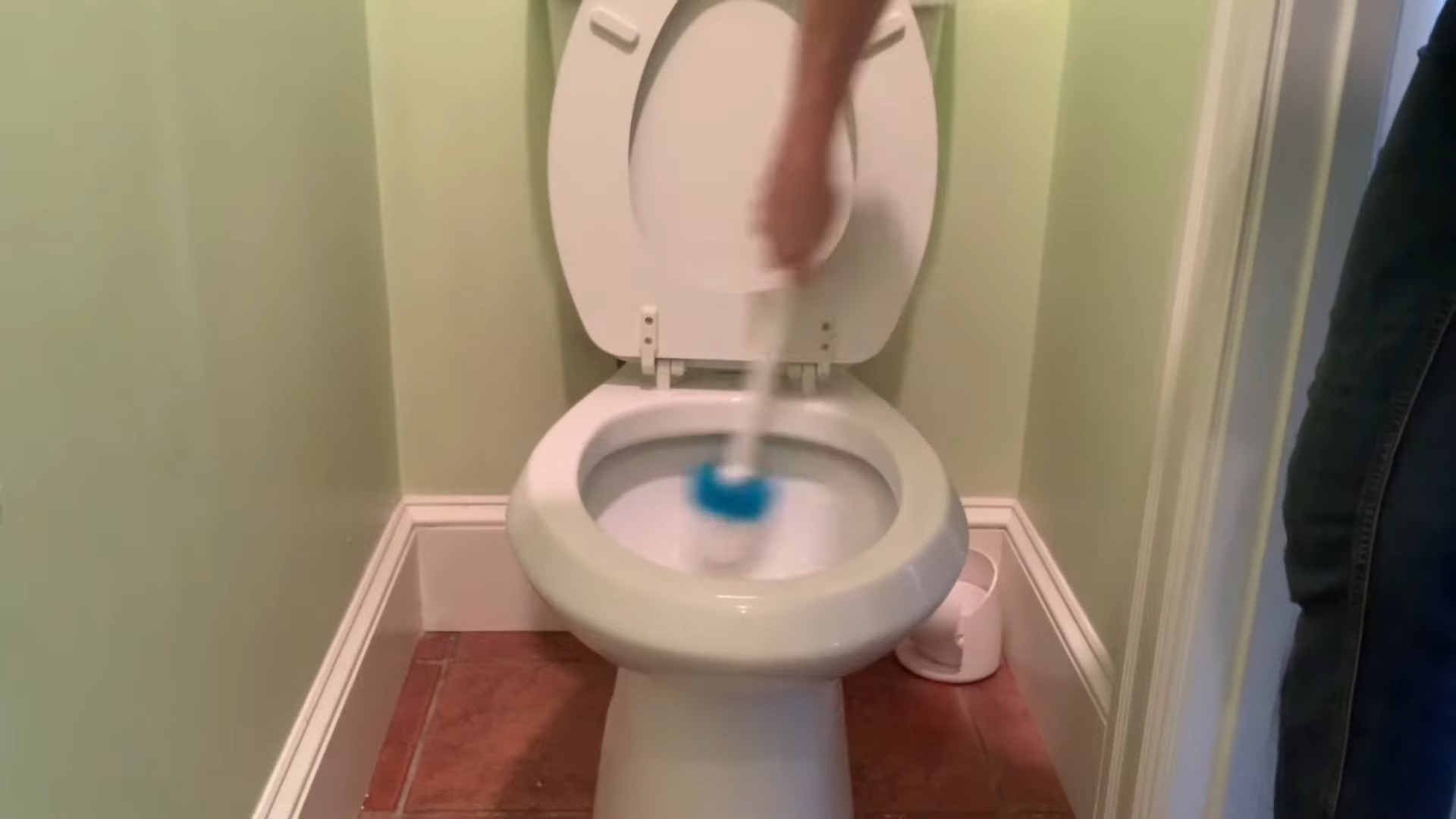
Conclusion
So, there you have it! Ditching the harsh chemicals and embracing the power of homemade cleaning products is not just a trend; it’s a conscious choice for a healthier home, a happier planet, and a lighter wallet. We’ve explored simple yet effective recipes that tackle everything from grimy countertops to stubborn toilet stains, all using ingredients you likely already have in your pantry.
Why is this a must-try? Because it’s empowering! You’re taking control of what you bring into your home, eliminating the mystery ingredients and potential toxins lurking in commercial cleaners. You’re also contributing to a more sustainable lifestyle by reducing plastic waste and minimizing your environmental footprint. And let’s be honest, there’s a certain satisfaction in creating something yourself, knowing exactly what went into it and how it works.
But the beauty of homemade cleaning products lies in their adaptability. Feel free to experiment with different essential oils to create your signature scents. Lavender for a calming bathroom cleaner, lemon for a zesty kitchen spray, or tea tree for its antibacterial properties – the possibilities are endless! You can also adjust the ratios of ingredients to suit your specific cleaning needs and preferences. For example, if you have particularly hard water, you might want to increase the amount of vinegar in your all-purpose cleaner. Or, if you prefer a thicker consistency for your scrub, add a bit more baking soda.
Consider these variations to further personalize your cleaning routine:
* **Citrus Infusion:** Infuse your vinegar with citrus peels (lemon, orange, grapefruit) for a few weeks before using it in your cleaners. This adds a delightful fragrance and boosts the cleaning power.
* **Herbal Power:** Add dried herbs like rosemary, thyme, or sage to your vinegar infusion for added antibacterial and antifungal properties.
* **Castile Soap Boost:** For extra cleaning power, add a small amount of castile soap to your all-purpose cleaner. Be careful not to add too much, as it can leave a residue.
* **Borax for Tough Stains:** For particularly stubborn stains, add a small amount of borax to your cleaning paste or scrub. However, use borax with caution and always wear gloves.
* Essential Oil Blends: Research essential oil blends that offer synergistic cleaning and aromatherapy benefits. For example, a blend of eucalyptus, peppermint, and tea tree can be invigorating and effective for cleaning bathrooms.
We truly believe that once you experience the effectiveness and simplicity of homemade cleaning products, you’ll never go back to store-bought alternatives. So, roll up your sleeves, gather your ingredients, and give it a try! We’re confident that you’ll be amazed by the results.
But don’t just take our word for it! We encourage you to experiment, adapt, and discover your own favorite homemade cleaning recipes. And most importantly, share your experiences with us! Let us know what works best for you, what variations you’ve tried, and any tips or tricks you’ve discovered along the way. Your feedback will not only help us improve our recipes but also inspire others to embrace the world of natural cleaning. Share your photos and stories on social media using #HomemadeCleaningRevolution and let’s build a community of eco-conscious cleaners together! We can’t wait to hear from you!
Frequently Asked Questions (FAQ)
Are homemade cleaning products as effective as store-bought cleaners?
Yes, in many cases, homemade cleaning products can be just as effective, if not more so, than their store-bought counterparts. The key is using the right ingredients and understanding their properties. For example, vinegar is a powerful disinfectant and degreaser, while baking soda is a gentle abrasive and deodorizer. Essential oils can also add antibacterial and antifungal benefits. However, it’s important to note that homemade cleaners may not be as effective against certain types of bacteria and viruses as some commercial disinfectants. For situations requiring hospital-grade disinfection, commercial products may be necessary. For everyday cleaning, however, homemade options are often sufficient and safer.
What are the benefits of using homemade cleaning products?
The benefits are numerous! Firstly, you’re reducing your exposure to harsh chemicals and toxins that can be harmful to your health and the environment. Many commercial cleaners contain ingredients that can irritate the skin, eyes, and respiratory system. Secondly, you’re saving money. The ingredients used in homemade cleaning products are typically much cheaper than store-bought cleaners. Thirdly, you’re reducing plastic waste by reusing spray bottles and containers. Finally, you have complete control over the ingredients, allowing you to customize your cleaners to your specific needs and preferences.
What are the best ingredients to use in homemade cleaning products?
Some of the most versatile and effective ingredients include:
* **Vinegar:** A natural disinfectant, degreaser, and deodorizer.
* **Baking Soda:** A gentle abrasive, deodorizer, and pH regulator.
* **Lemon Juice:** A natural disinfectant, degreaser, and brightener.
* **Essential Oils:** Add fragrance and antibacterial/antifungal properties. Popular choices include lavender, lemon, tea tree, and eucalyptus.
* **Castile Soap:** A gentle and effective cleanser made from vegetable oils.
* **Borax:** A natural mineral with cleaning, disinfecting, and deodorizing properties (use with caution).
* **Washing Soda (Sodium Carbonate):** A powerful cleaner and degreaser (use with caution).
Are there any ingredients I should avoid using in homemade cleaning products?
Yes, there are a few ingredients that should be avoided or used with extreme caution:
* **Bleach and Vinegar:** Never mix bleach and vinegar, as this creates toxic chlorine gas.
* **Ammonia and Bleach:** Similar to vinegar, mixing ammonia and bleach creates toxic chloramine gas.
* **Rubbing Alcohol and Bleach:** This combination can also create toxic fumes.
* **Borax and Vinegar:** While not as dangerous as the above combinations, mixing borax and vinegar can create a chemical reaction that reduces the effectiveness of both ingredients.
* **Undiluted Essential Oils:** Always dilute essential oils before using them, as they can be irritating to the skin and mucous membranes.
How should I store homemade cleaning products?
Store your homemade cleaning products in clean, labeled spray bottles or containers. It’s important to label them clearly to avoid confusion and accidental ingestion. Store them in a cool, dark place away from children and pets. Some homemade cleaners, such as those containing essential oils, may degrade over time, so it’s best to use them within a few months.
Can I use homemade cleaning products on all surfaces?
While most homemade cleaning products are safe for a wide range of surfaces, it’s always a good idea to test them on an inconspicuous area first, especially on delicate or porous surfaces like marble, granite, or wood. Avoid using acidic cleaners like vinegar or lemon juice on these surfaces, as they can etch or damage them.
How do I make an all-purpose cleaner?
So, there you have it! Ditching the harsh chemicals and embracing the power of homemade cleaning products is not just a trend; it’s a conscious choice for a healthier home, a happier planet, and a lighter wallet. We’ve explored simple yet effective recipes that tackle everything from grimy countertops to stubborn toilet stains, all using ingredients you likely already have in your pantry.
Why is this a must-try? Because it’s empowering! You’re taking control of what you bring into your home, eliminating the mystery ingredients and potential toxins lurking in commercial cleaners. You’re also contributing to a more sustainable lifestyle by reducing plastic waste and minimizing your environmental footprint. And let’s be honest, there’s a certain satisfaction in creating something yourself, knowing exactly what went into it and how it works.
But the beauty of homemade cleaning products lies in their adaptability. Feel free to experiment with different essential oils to create your signature scents. Lavender for a calming bathroom cleaner, lemon for a zesty kitchen spray, or tea tree for its antibacterial properties – the possibilities are endless! You can also adjust the ratios of ingredients to suit your specific cleaning needs and preferences. For example, if you have particularly hard water, you might want to increase the amount of vinegar in your all-purpose cleaner. Or, if you prefer a thicker consistency for your scrub, add a bit more baking soda.
Consider these variations to further personalize your cleaning routine:
* **Citrus Infusion:** Infuse your vinegar with citrus peels (lemon, orange, grapefruit) for a few weeks before using it in your cleaners. This adds a delightful fragrance and boosts the cleaning power.
* **Herbal Power:** Add dried herbs like rosemary, thyme, or sage to your vinegar infusion for added antibacterial and antifungal properties.
* **Castile Soap Boost:** For extra cleaning power, add a small amount of castile soap to your all-purpose cleaner. Be careful not to add too much, as it can leave a residue.
* **Borax for Tough Stains:** For particularly stubborn stains, add a small amount of borax to your cleaning paste or scrub. However, use borax with caution and always wear gloves.
* Essential Oil Blends: Research essential oil blends that offer synergistic cleaning and aromatherapy benefits. For example, a blend of eucalyptus, peppermint, and tea tree can be invigorating and effective for cleaning bathrooms.
We truly believe that once you experience the effectiveness and simplicity of homemade cleaning products, you’ll never go back to store-bought alternatives. So, roll up your sleeves, gather your ingredients, and give it a try! We’re confident that you’ll be amazed by the results.
But don’t just take our word for it! We encourage you to experiment, adapt, and discover your own favorite homemade cleaning recipes. And most importantly, share your experiences with us! Let us know what works best for you, what variations you’ve tried, and any tips or tricks you’ve discovered along the way. Your feedback will not only help us improve our recipes but also inspire others to embrace the world of natural cleaning. Share your photos and stories on social media using #HomemadeCleaningRevolution and let’s build a community of eco-conscious cleaners together! We can’t wait to hear from you!
Frequently Asked Questions (FAQ)
Are homemade cleaning products as effective as store-bought cleaners?
Yes, in many cases, homemade cleaning products can be just as effective, if not more so, than their store-bought counterparts. The key is using the right ingredients and understanding their properties. For example, vinegar is a powerful disinfectant and degreaser, while baking soda is a gentle abrasive and deodorizer. Essential oils can also add antibacterial and antifungal benefits. However, it’s important to note that homemade cleaners may not be as effective against certain types of bacteria and viruses as some commercial disinfectants. For situations requiring hospital-grade disinfection, commercial products may be necessary. For everyday cleaning, however, homemade options are often sufficient and safer.
What are the benefits of using homemade cleaning products?
The benefits are numerous! Firstly, you’re reducing your exposure to harsh chemicals and toxins that can be harmful to your health and the environment. Many commercial cleaners contain ingredients that can irritate the skin, eyes, and respiratory system. Secondly, you’re saving money. The ingredients used in homemade cleaning products are typically much cheaper than store-bought cleaners. Thirdly, you’re reducing plastic waste by reusing spray bottles and containers. Finally, you have complete control over the ingredients, allowing you to customize your cleaners to your specific needs and preferences.
What are the best ingredients to use in homemade cleaning products?
Some of the most versatile and effective ingredients include:
* **Vinegar:** A natural disinfectant, degreaser, and deodorizer.
* **Baking Soda:** A gentle abrasive, deodorizer, and pH regulator.
* **Lemon Juice:** A natural disinfectant, degreaser, and brightener.
* **Essential Oils:** Add fragrance and antibacterial/antifungal properties. Popular choices include lavender, lemon, tea tree, and eucalyptus.
* **Castile Soap:** A gentle and effective cleanser made from vegetable oils.
* **Borax:** A natural mineral with cleaning, disinfecting, and deodorizing properties (use with caution).
* **Washing Soda (Sodium Carbonate):** A powerful cleaner and degreaser (use with caution).
Are there any ingredients I should avoid using in homemade cleaning products?
Yes, there are a few ingredients that should be avoided or used with extreme caution:
* **Bleach and Vinegar:** Never mix bleach and vinegar, as this creates toxic chlorine gas.
* **Ammonia and Bleach:** Similar to vinegar, mixing ammonia and bleach creates toxic chloramine gas.
* **Rubbing Alcohol and Bleach:** This combination can also create toxic fumes.
* **Borax and Vinegar:** While not as dangerous as the above combinations, mixing borax and vinegar can create a chemical reaction that reduces the effectiveness of both ingredients.
* **Undiluted Essential Oils:** Always dilute essential oils before using them, as they can be irritating to the skin and mucous membranes.
How should I store homemade cleaning products?
Store your homemade cleaning products in clean, labeled spray bottles or containers. It’s important to label them clearly to avoid confusion and accidental ingestion. Store them in a cool, dark place away from children and pets. Some homemade cleaners, such as those containing essential oils, may degrade over time, so it’s best to use them within a few months.
Can I use homemade cleaning products on all surfaces?
While most homemade cleaning products are safe for a wide range of surfaces, it’s always a good idea to test them on an inconspicuous area first, especially on delicate or porous surfaces like marble, granite, or wood. Avoid using acidic cleaners like vinegar or lemon juice on these surfaces, as they can etch or damage them.
How do I make an all-purpose cleaner?
A simple and effective all-purpose cleaner can be made by mixing equal parts of water and vinegar in a spray bottle. Add a few drops of your favorite essential oil for fragrance and added cleaning power.
How do I make a toilet bowl cleaner?
Sprinkle baking soda into the toilet bowl, then pour in a cup of vinegar. Let it fizz for a few minutes, then scrub with a toilet brush and flush.
How do I make a glass cleaner?
Mix equal parts of water and vinegar in a spray bottle. Spray onto the glass surface and wipe clean with a microfiber cloth.
What if my homemade cleaning product doesn’t work as well as I expected?
Don’t be discouraged! Experiment with different ratios of ingredients and try adding other ingredients to boost the cleaning power. For example, if your all-purpose cleaner isn’t cutting through grease, try adding a small amount of castile soap. If your toilet bowl cleaner isn’t removing stains, try adding a small amount of borax (use with caution). Remember, finding the perfect recipe may take some trial and error.
Are homemade cleaning products safe for pets and children?
Generally, homemade cleaning products are safer for pets and children than commercial cleaners, as they don’t contain harsh chemicals and toxins. However, it’s still important to keep them out of reach and to supervise children when they are using them. Some essential oils can be toxic to pets, so do your research before using them in your cleaners. If you have any concerns, consult with your veterinarian or pediatrician.
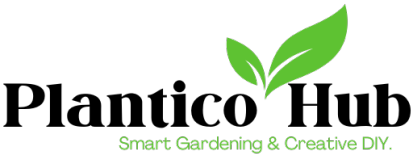
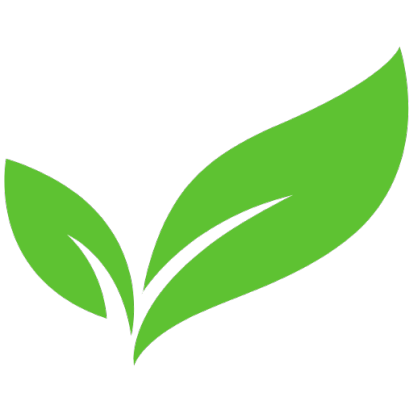
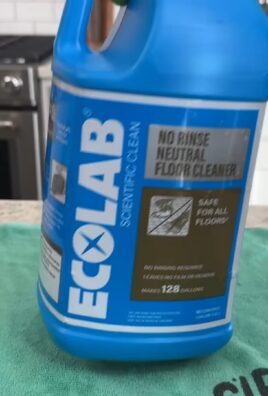
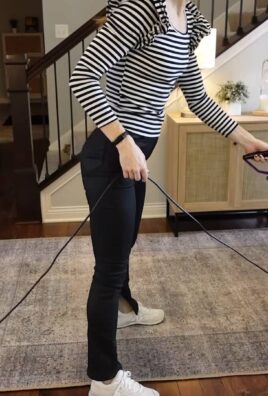
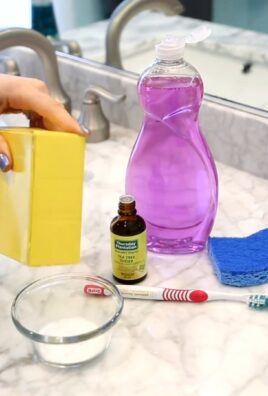
Leave a Comment